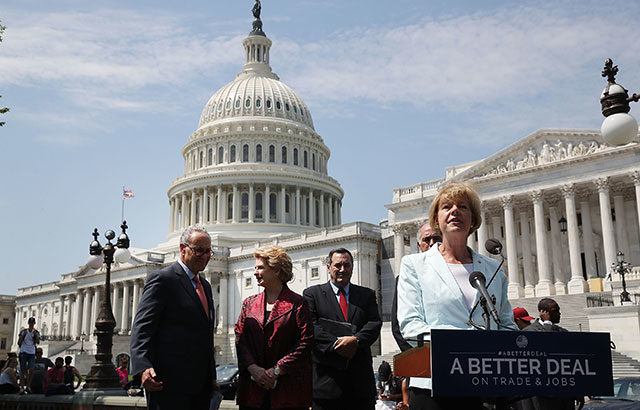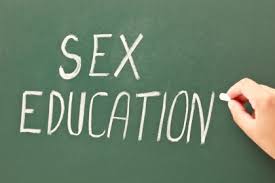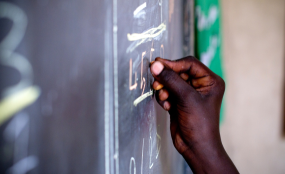By Henry Giroux
There is a certain duplicity in the Democratic Party’s attempts to remake itself as the enemy of the corporate establishment and a leader in a movement to resist Trump and his mode of authoritarianism.
Democrats, such as Ted Lieu, Maxine Waters and Elizabeth Warren, represent one minority faction of the party that rails against Trump’s racism and authoritarianism while less liberal types who actually control the party, such as Chuck Schumer and Nancy Pelosi, claim that they have heard the cry of angry workers and are in the forefront of developing an opposition party that will reverse many of the policies that benefited the financial elite. Both views are part of the Democratic Party’s attempt to rebrand itself.
The Democrats’ new populist platform, called «A Better Deal: Better Skills, Better Jobs, Better Wages» has echoes of FDR’s New Deal, but it says little about developing both a radical democratic vision and economic and social policies that would allow the Democratic Party to speak more for the poor, people of color and young people than for the corporate and financial elite that run the military-industrial-entertainment complex. Their anti-Trump rhetoric rings hollow.
For Democratic Party leaders, the rebranding of the party rests on the assumption that resistance to Trump merely entails embracing the needs of those who are the economic losers of neoliberalism and globalization. What they forget is that authoritarianism thrives on more than economic discontent, as the recent white supremacist violence in Charlottesville, Virginia, made clear. Authoritarianism also thrives on racism, xenophobia, exclusion, expulsion and the deeming of certain subgroups as «disposable» — a script that the «new» Democratic Party has little to say about.
David Broder has recently argued that being anti-Trump is not a sufficient political position because doing so inures people to a myriad of neoliberal policies that have impoverished the working class, destroyed the welfare state, waged foreign wars and a war on public goods, polluted the environment, created massive inequities and expanded the reach of the punishing and mass incarceration state. Even though these neoliberal policies were produced by both Republicans and liberal Democrats, this message appears to have been taken up, at least partly, by the Democrats in a focused attempt to rebrand themselves as the guardians of working class interests.
For too many members of the Democratic Party, Trump is the eccentric clown who unexpectedly stepped into history by finding the right note in rousing an army of «deplorables» willing to invest in his toxic script of hatred, demonization and exclusion. Of course, as Anthony DiMaggio, Thomas Frank, Michelle Alexander, Naomi Klein, Paul Street and others have pointed out, this is a false yet comforting narrative for a liberal elite whose moralism is as suffocating as is their belief in centrist politics. Neoliberal policies, especially under Clinton and Obama, created the conditions for Trump to actually come to power in the first place.
Trump’s presidency represents not merely the triumph of authoritarianism but also the tragedy of a neoliberal capitalism that benefited investment bankers, Wall Street, lawyers, hedge fund managers and other members of the financial elite who promoted free trade, financial deregulation, cutthroat competition and commercialization as the highest measure of individual and market freedom. Trump is not simply the result of a surprising voter turnout by an angry, disgruntled working class (along with large segments of the white suburban middle class), he is also the endpoint of a brutal economic and political system that celebrated the market as the template for governing society while normalizing a narrative of greed, self-interest and corporate power. Trump is the mirror reflection of the development of a form of illiberal democracy and authoritarianism that mixes neoliberal economic policies, anti-immigrant bigotry, the stifling of free speech, hyper-nationalism and a politics of disposability and exclusion.
A History of Betrayal by Both Political Parties
Getting in bed with Wall Street has also been a favorite pastime of the Democratic Party.
The tyranny of the current moment bespeaks a long history of betrayal by a financial and political class that inhabits both major parties. It is no secret that the Republican Party has been laying the groundwork for an American-style authoritarianism since the 1970s by aggressively pushing for massive tax cuts for the rich, privatizing public goods, promoting a culture of fear, crushing trade unions, outsourcing public services and eliminating restrictions designed to protect workers, women and the environment. But they have not been the only party reproducing the dictates of neoliberalism. Getting in bed with Wall Street has also been a favorite pastime of the Democratic Party.
It was the Democratic Party, especially under President Clinton, that prepared the groundwork for the financial crisis of 2007 by loosening corporate and banking regulations while at the same time slashing welfare provisions and creating the conditions for the intensification of the mass incarceration state. The Clinton administration did more than court Wall Street, it played a decisive role in expanding the neoliberal gains that took place three decades before he was elected. Nancy Fraser insightfully sums this up in her contribution to The Great Regression anthology:
Neoliberalism developed in the United States roughly over the last three decades and was ratified with Bill Clinton’s election in 1992…. Turning the US economy over to Goldman Sachs, it deregulated the banking system and negotiated the free-trade agreements that accelerated deindustrialization…. Continued by his successors, including Barack Obama, Clinton’s policies degraded the living conditions of all working people, but especially those employed in industrial production. In short, Clintonism bears a heavy share of responsibility for the weakening of unions, the decline of real wages, the increasing precarity of work, and the rise of the ‘two-earner family’ in place of the defunct family wage.
The Obama administration continued this abandonment of democratic values by bailing out the bankers and selling out millions of people who lost their homes while at the same time aggressively prosecuting whistleblowers. It was the Obama administration that added a kill list to its foreign policy and matched it domestically with educational policies that collapsed education into vocational training and undermined it as a moral and democratizing public good. Obama mixed neoliberalism’s claim to unbridled economic and political power with an educational reform program that undermined the social imagination and the critical capacities that made democracy possible. Promoting charter schools and mind-numbing accountability schemes, Obama and the Democratic Party paved the way for the appointment of the hapless reactionary billionaire Betsy DeVos as Trump’s Secretary of Education. And it was the Obama administration that enlarged the surveillance state while allowing CIA operatives who tortured and maimed people in the name of American exceptionalism and militarism to go free. In short, the flirtation of neoliberalism with the forces of illiberal democracy was transformed into a courtship during the Clinton and Obama administrations and until death do us part under Trump.
The growing disregard for public goods, such as schools and health care, the weakening of union power, the erosion of citizenship to an act of consumption, the emptying out of political participation, and the widening social and economic inequality are not only the product of a form of ideological extremism and market fundamentalism embraced by Republicans. The Democratic Party also has a long legacy of incorporating the malicious policies of neoliberalism in their party platforms in order to curry favor with the rich and powerful. Neoliberalism stands for the death of democracy, and the established political parties have functioned as its accomplice. Both political parties, to different degrees, have imposed massive misery and suffering on the American people and condemned many to what David Graeber has described in his book The Democracy Project as «an apparatus of hopelessness, designed to squelch any sense of an alternative future.» While Trump and the Republican Party leadership display no shame over their strong embrace of neoliberalism, the allegedly reform-minded Democratic Party covers up its complicity with Wall Street and uses their alleged opposition to Trump to erase their criminogenic history with casino capitalism. With Republican majorities, mainstream Democrats share an unwillingness to detach themselves from an ideology that challenges the substance of a viable democracy and the public spheres and formative cultures that make it possible.
Democratic Party Remains Complicit in Neoliberal and Authoritarian Politics
Chris Hedges has laid bare both the complicity of the Democratic Party in neoliberal and authoritarian politics as well as the hypocrisy behind its claim to be the only political alternative to challenge Trump’s illiberalism. He is worth quoting at length:
The liberal elites, who bear significant responsibility for the death of our democracy, now hold themselves up as the saviors of the republic. They have embarked, despite their own corruption and their complicity in neoliberalism and the crimes of empire, on a self-righteous moral crusade to topple Donald Trump. It is quite a show…. Where was this moral outrage when our privacy was taken from us by the security and surveillance state, the criminals on Wall Street were bailed out, we were stripped of our civil liberties and 2.3 million men and women were packed into our prisons, most of them poor people of color? Why did they not thunder with indignation as money replaced the vote and elected officials and corporate lobbyists instituted our system of legalized bribery? Where were the impassioned critiques of the absurd idea of allowing a nation to be governed by the dictates of corporations, banks and hedge fund managers? Why did they cater to the foibles and utterings of fellow elites, all the while blacklisting critics of the corporate state and ignoring the misery of the poor and the working class? Where was their moral righteousness when the United States committed war crimes in the Middle East and our militarized police carried out murderous rampages?
According to Katie Sanders, writing in PunditFact, under the Obama presidency, the Democrats «lost 11 governorships, 13 U.S. Senate seats, 69 House seats, and 913 state legislative seats and 30 state legislative chambers.» And the losses and humiliations got worse in 2016 elections. It is no secret that the Democratic Party is a political formation of diminished power and hopes. Yet, in the face of Trump’s authoritarianism, it has attempted to reinvent itself as the party of reform by updating its worn out economic policies and ideological scripts. As proof of its reincarnation, it has proposed a platform titled «A Better Deal,» signaling a populist turn in economic policy. A number of its economic reforms would certainly help benefit the poor and underprivileged. These include proposed increases of the minimum wage to $15, tax credits to encourage job training and hiring, regulations to lower drug costs, stronger anti-trust laws and a trillion-dollar infrastructure plan. The platform, however, does not support universal health care, and it says nothing about providing free higher education, reducing military spending or reversing the huge growth in inequality.
As Anthony DiMaggio points out, the plan «doesn’t even reach a Bernie Sanders level of liberalism, and it is a far cry from the kind of progressive populist policies introduced in FDR’s New Deal and Johnson’s Great Society/War on Poverty.» Eric Cheyfitz adds to this argument by insisting that the plan does nothing to challenge the rapacious system of unfettered capitalism the Democrats and Republicans have supported since the 1970s. Democrats are completely unrepentant about having supported the deregulation of capital and thus ushered in a new form of US authoritarianism. Moreover, any reform policy worth its name would directly address income inequality and the power of the military-industrial complex, while fighting for single-payer health care and a redistribution of wealth and power. There will have to be a massive refiguring of power and redistribution of wealth to address the health care crisis, poverty, climate change, inadequacies in education and the plague of mass incarceration — problems not addressed in the Better Deal. It is not unreasonable to assume that such vexing challenges cannot be addressed within a two-party system that supports the foundational elements of predatory capitalism.
In spite of the horrendous neoliberal ideology and reactionary policies driving the Democratic Party, various Democrats and progressives cannot bring themselves to denounce either capitalism as the bane of democracy nor its suffocating hold on its reform efforts. They appear thunderstruck when asked to denounce a corrupt two-party system and develop a social movement and political apparatus that supports democratic socialism.
For instance, unrepentant centrist liberals, such as Mark Penn and Andrew Stein, have castigated progressives within the party while unapologetically embracing neoliberalism as a reform strategy. They believe that the Democratic Party has lost its base because it rushed to defend «identity politics» and leftist ideas and that workers felt abandoned by the party’s «shift away from moderate positions on trade and immigration, from backing police and tough anti-crime measures.» Instead, they claim that the Democratic Party needs «to reject socialist ideas and adopt an agenda of renewed growth, greater protection for American workers … return to fiscal responsibility, and give up on … defending sanctuary cities.»
This sounds like a script written by a Trump policy advisor. It gets worse. Others such as Leonard Steinhorn have argued that the real challenge facing the Democratic Party is not to change their policies but their brand and messaging techniques. This argument suggests that the Democrats lost their base because they failed to win the messaging battle rather than the loss being due to moving to the right and aligning themselves with corporate and moneyed interests.
Suffering from an acute loss of historical memory, Jonathan Chait argues that the Democratic Party never embraced the policies of neoliberalism and has in its recent incarnations actually moved to the left, upholding the principles of the New Deal and Great Society. As Leah Hunt-Hendrix observes:
One need not be anti-capitalist to understand that the Democratic [Party] … allowed for policies that deregulated the finance sector (under President Bill Clinton), allowed for the privatization of many public goods (including the weakening of the public education system through the promotion of charter schools) and bailed out Wall Street banks without taking measures to truly address the needs of struggling working Americans.
Chait seems to have overlooked the fact that Trump and Sanders have proved conclusively that the working class no longer belongs to the Democratic Party or that the Democratic Party under Clinton and Obama became the vanguard of neoliberalism. He goes even further, arguing implausibly that neoliberalism is simply an epithet used by the left to discredit liberals and progressive Democrats. Chait appears oblivious to the transformation of the Democratic Party into an adjunct of the rich and corporate elite.
Is Chait unaware of Clinton’s elimination of the Glass-Steagall Act, his gutting of the welfare system and love affair with Wall Street, among his many missteps? How did he miss Obama’s bailout of Goldman-Sachs, the abandonment of education as a public good, his attack on whistleblowers, or the Democrats’ assault on organized labor via NAFTA? Was he unware that, in a White House interview given to Noticias Univision 23, Obama admitted that his «policies are so mainstream that if I had set the same policies that I had back in the 1980s, I would be considered a moderate Republican?»
In the end, Chait is most concerned about what he calls an attempt on the part of the left to engage in the trick of bracketing «the center-left with the right as ‘neoliberal’ and force progressives to choose between that and socialism.» He goes on to say that «The ‘neoliberal’ accusation is a synecdoche for the American left’s renewed offensive against the center-left and a touchstone in the struggle to define progressivism after Barack Obama [and] is an attempt to win an argument with an epithet.» Because of his fear of democratic socialism, Chait is like many other centrists in the Democratic Party who are oblivious to the damaging effects of the scorched-earth neoliberal polices adopted under the Clinton and Obama administrations.
Other progressive spokespersons, such as John Nichols and Leah Hunt-Hendrix, and groups, such as Our Revolution and the Incorruptibles, want to rebuild the Democratic Party from the base up by running candidates with progressive values «for local offices: in state houses, city councils, planning commissions, select boards and more.» The emphasis here would be for activists to revitalize and take over the Democratic Party by turning it to the left so that it will stand up for the poor and underprivileged.
Tom Gallagher adds to this reform strategy by arguing that Bernie Sanders should join the Democratic Party — forgetting that when he supported Hillary Clinton in the presidential election, he presented himself as a defacto member of the party in all but name.
Many of the strategies proposed to move the Democratic Party away from its history of centrism and the violence of neoliberalism are noble: If they were enacted at the level of policies and power relations, they would certainly make life easier for the poor, vulnerable and excluded. Progressives are right to be motivated and inspired by Sanders’s courage and policies. Sanders’s campaign against a rigged economy that redistributed wealth and income upward on a massive scale to the rich and corporate robber barons, coupled with his critique of the fixed political system that protected neoliberalism, provided a new language that had the potential to be visionary. But there is a difference between calling for reform and offering a new and compelling vision with an emphasis on a radical transformation of the political and economic systems.
At the same time, calls for a new vision and supporting values for radical democratic change do not mean abandoning attempts at reforming the Democratic Party as much as viewing such attempts as part of a broader strategy designed to make immediate progressive gains on a number of fronts. Most importantly, such a strategy moves beyond reform by pushing the party to its ideological and political limits so as to make visible the endpoint of liberal reform. At stake here is the assumption that such a strategy will make clear that the Democratic Party is incapable of being transformed radically and as such should not be expected to be on the forefront of radical democratic change.
Political and ideological centrism is endemic to the Democratic Party: It has never called for restructuring a system that is corrupt to the core. As a result, in the words of Nancy Fraser, the antidote to authoritarianism «is a left project that redirects the rage and the pain of the dispossessed towards a deep societal restructuring and a democratic political ‘revolution’.» The power of a left-progressive presence in the United States will, in part, depend on developing a comprehensive and accessible narrative that is able, as Nancy Fraser observes, to «articulate the legitimate grievances of Trump supporters with a fulsome critique of financialization on the one hand, and with an anti-racist, anti-sexist and anti-hierarchical vision of emancipation on the other.» The left needs a populism with a social conscience, one that allows young people, workers, the middle class, and others to see how their futures might develop in a way that speaks to their needs and a more just and equitable life, one in which the utopian possibilities of a radical democracy appear possible.
Looking Beyond the Democratic Party
A new vision for change cannot be built on the legacy of the Democratic Party. What is needed is a concerted attempt to figure out what democratic socialism will mean and look like in the 21st century. This suggests rethinking the meaning of politics, one that can rekindle the social imagination. Central to such a struggle is the role education must play in creating the formative culture capable of creating critical and engaged citizens. In this case, politics moves beyond ephemeral protests and recalibrates itself to create the public spheres that enable progressives to think about what long term movements, organizations and institutions can be aligned to create new political formations willing to confront neoliberal capitalism and other forms of oppression, not simply as symptoms of a distorted democracy but as part of a more radical project unwilling to compromise on identifying root causes.
Michelle Alexander is right in warning us that it would be a tragedy to waste the growing resistance against Trump «by settling for any Democrat the next time around.» I would similarly argue that we should not settle for a choice between good or bad Democrats. We must instead struggle for a radical restructuring of society, one that gives meaning to a substantive democracy. Resistance cannot be either defensive or ephemeral, reduced to either a narrow criticism of Trump’s policies or to short-lived expressions of protests. As Michael Lerner has pointed out, protests are moments, and however pedagogically and politically valuable, do not constitute a movement. As Zygmunt Bauman and Leonidas Donskis have suggested in their book Liquid Evil, protests function as «an explosion of political subjectivity» and generally tell us what people are against but not what they want. Coupled with a new vision, moral language and democratic values, the left and other progressives need a platform for thinking beyond neoliberal capitalism.
As David Harvey observes, the problems Americans face are too intractable and extensive to resolve without a strong anti-capitalist movement. This will only take place if progressives create a broad-based social movement that aligns struggles at the local, state and national level with democratic movements at the global level. The peripheral demands of single-issue movements cannot be abandoned, but they must translate into wider opportunities for social change. There should be no contradiction between the call for educational reform, women’s rights and ecological change and what Katrina Forrester calls an alternative economic and political vision for America. At the same time, it is a mistake for progressives to look at society only in terms of economic structures and issues. A mass-based movement to challenge neoliberalism and authoritarianism cannot be constructed unless it also commits to struggle against the many forms of oppression extending from sexism and racism to xenophobia and transphobia. Only a movement that unifies these diverse struggles will lead us toward a radical democracy.
Politics becomes radical when it translates private troubles into broader systemic issues and challenges the commanding institutional and educational structures of neoliberalism. To be effective, it must do so in a language that speaks to people’s needs, enabling them to both identify and invest in narratives in which they can recognize themselves and the conditions that produce the suffering they experience. For this reason, the call for institutional change is inextricably connected to the politics of social transformation. Such transformation must propel us toward an international movement to build a society that embraces the beauty of universal emancipation and promise of a radical democracy. At a time in history when the stakes for democracy are so threatened and life on the planet itself so imperiled, collective action is the only way out of the age of illiberal democracy. It is time to go for broke.
Source:
http://www.truth-out.org/news/item/41672-why-the-democratic-party-can-t-save-us-from-trump-s-authoritarianism













 Users Today : 94
Users Today : 94 Total Users : 35460111
Total Users : 35460111 Views Today : 116
Views Today : 116 Total views : 3418747
Total views : 3418747